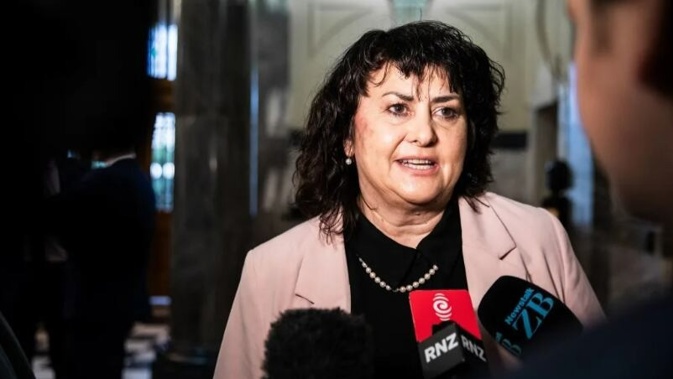
- The coalition directed Health New Zealand to use “women” instead of “pregnant people” in communications.
- Casey Costello emphasised the need for sex-specific language to ensure clarity in women’s health services.
- Dr George Parker criticised the directive, stating it opposes best practice for inclusive and equitable care.
The coalition has directed Health New Zealand to say “women” instead of “pregnant people” in its communications about health issues.
Associate Health Minister Casey Costello wrote to interim chief executive Dr Dale Bramley on March 27, telling the agency to use “clear language”.
“Recent documents that have reached my office from the Ministry of Health have referred to women as ‘pregnant people’, ‘people with a cervix’ or ‘individuals capable of childbearing’,” she said in the letter.
“Only women and people of the female sex can get pregnant and birth a child no matter how they identify.”
Costello pointed to inequities and bias in the health system, as well as conditions like endometriosis, as reasons why she thought it was necessary Health NZ used “sex-specific language”.
“It is important that we have clarity about the people we are referring to when talking about women’s health. Sex-specific language ensures that women know what health services they are entitled to and can access these easily, especially for those women with English as a second language.
“Clear language should be used in all documents and communications that refer to health issues specific to females.”
Inclusive language
RNZ asked Health New Zealand why it had been using inclusive language, and for how long, and what changes it had made since receiving Costello’s letter.
A Health New Zealand spokesperson said the agency did not have a policy relating to the use of gender-inclusive language.
It’s not clear if the agency has made any changes to its approach since receiving the letter but its 2023/24 annual report referred to both “pregnant women” and “pregnant people”.
Victoria University senior lecturer and researcher Dr George Parker, who has studied LGBTQIA+ equitable reproductive and perinatal healthcare, said the letter went against best practice.
“The memo is part of a broader push against equity initiatives in healthcare internationally and it is disappointing to see this picked up by politicians in Aotearoa.
“Roadblocking the use of inclusive language in Health New Zealand is against the findings of research commissioned by government agencies and is a step backwards for inclusive and equitable perinatal care.”
Health best practice
Parker said perinatal services were used by diverse people and whānau and it shouldn’t be up to politicians to determine how those accessing services defined themselves.
“Research-informed best practice is to use neutral terms to describe perinatal service users and to invite people to self-identify who they are, and what matters to them, as part of individualised and person-centred healthcare.”
Parker added there was no evidence cis-gendered people were negatively affected by the use of inclusive language.
RNZ has since asked Costello for any evidence this is not the case.
In an earlier response to RNZ, Costello reiterated clear communication was important, particularly for women with English as a second language.
“I have the delegation for women’s health, we have a women’s health strategy – I want to ensure women get the services and information they need.
“This does not stop Health NZ and the Ministry of Health developing communications and resources for trans and non-binary people.”
-Anneke Smith, RNZ
Take your Radio, Podcasts and Music with you









